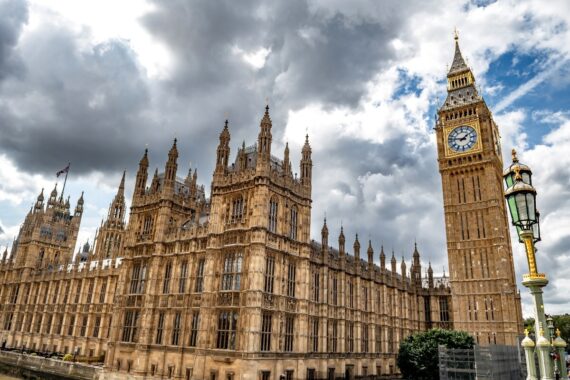MPs criticise Government’s lack of a clear plan for NHS England’s abolition

The Government must share its plans for the abolition of NHS England within the next three months to curb ‘high levels of uncertainty’, a group of MPs has demanded.
The House of Commons public accounts committee (PAC) said it is ‘essential’ that the Department of Health and Social Care formulate the plans ‘quickly’ and provide certainty for patients and staff ‘as soon as possible’.
Today it published a report which warned that NHS England’s abolition announced in March has ‘created high levels of uncertainty for patients and for staff’.
It stressed that the plans should also prioritise retaining ‘close and effective’ working relations with GPs, local councils and directors of public health.
The Government announced plans to scrap NHS England earlier this year, in a bid to ‘reduce duplication’ and to direct more resources ‘back into the front line’.
Health secretary Wes Streeting said that NHS England will be ‘brought into’ DHSC ‘entirely’ over the next two years.
The PAC report said: ‘It is disappointing that the Department and NHS England do not have a clear plan for how they will achieve the required reductions in headcount, and are unable to articulate the costs involved.
‘The reductions have been announced prior to the finalisation of the NHS’ 10-Year Health Plan, and therefore we do not yet know how these fit with the wider plans for the NHS.
‘This includes not knowing how the savings made from NHS England’s reduced staffing costs will translate into a stable financial footing for frontline NHS services.’
On plans for the abolition of NHSE, committee chair Sir Geoffrey Clifton-Brown said: ‘It has been two months since Government’s decision to remove what up until now has been seen as a key piece of machinery without articulating a clear plan for what comes next, and the future for patients and staff remains hazy.
‘These changes also require 50% reduction in local health board staff, including frontline services such as health prevention, GP services and dentistry.
‘These services are usually the first interaction a patient has with the NHS, so we will require further reassurance and clarity on how government intends these changes to play out on the local level.’
The report also said that it is ‘unacceptable’ that DHSC is yet to develop a plan to deal with the cost of clinical negligence claims, and added that ‘so much taxpayers’ money is being spent on legal fees’.
DHSC has set aside £58.2bn to cover the potential costs of clinical negligence events occurring prior to 1 April 2024, the second largest liability across government, the report added.
It pointed out that:
- Some £9.3bn of that £58.2bn relates to events occurring in 2023/24
- In the same year, it also paid out £2.8bn on clinical negligence claims
- 19% of the money awarded to claimants goes to their lawyers, on top of the fees payable for the Department’s defence team
The report added: ‘Behind these jaw-dropping amounts lie many tragic incidents of patient harm. We are disappointed that huge improvements still need to be made to better protect both patients and public money.’
Medical Protection Society (MPS) chief member officer Dr Rob Hendry said that the committee is right to question whether such costs are sustainable for the NHS, and whether such significant amounts of money should be spent on legal fees.
He added: ‘In lower value claims it is not unusual to see lawyers’ costs exceed the compensation awarded to claimants. This is not right.
‘The high cost of clinical negligence also impacts on healthcare professionals not protected through a state-backed indemnity scheme – such as dentists and private practitioners – who bear the cost of protecting themselves against claims.
‘A balance must be struck between compensation that is reasonable but also affordable, and a long overdue strategy is needed, led by the health and justice departments.
‘The Government must turn its hand to this issue swiftly and consider some bold reforms if we are going to get close to addressing it.’
A DHSC spokesperson said: ‘Serious reform is needed to tackle the challenges facing the NHS, which is why we are bringing NHS England back into the department – eliminating wasteful duplication and freeing up hundreds of millions for the frontline.
‘We’ve always been up front that completing this process is expected to take around two years, but through our Plan for Change we are getting on with the job so people can once again be confident the NHS is there for them when they need it.’
Pulse has looked into what the abolition of NHSE will mean for GPs as well as a timeline of the commissioner since it was established.
Earlier this year, the BMA said NHS England has been ‘stopping’ GP contract reform and its abolition could be an ‘opportunity’ for general practice.
Portfolio careers
What is the right portfolio career for you?












